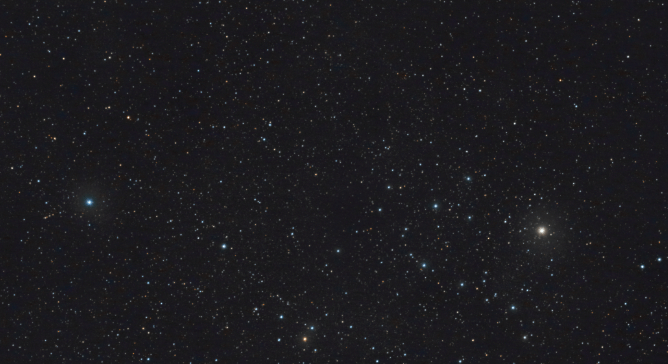Have you ever wondered about the mysteries of the universe and our place in it? Beyond Biocentrism claims to have all the answers, but is this theory truly accurate or just another pseudoscientific idea? In this blog post, we will delve into the misconceptions surrounding Beyond Biocentrism and explain why a biocentric perspective is still essential in understanding our world. So sit back, relax, and let’s separate fact from fiction!
What is beyond biocentrism?
Beyond Biocentrism is a theory that attempts to explain the mysteries of the universe, including consciousness and existence. According to Beyond Biocentrism, our understanding of reality is limited by our human perspective, and we must shift our focus from a human-centric view to one that includes all forms of life.
The proponents of Beyond Biocentrism argue that everything in the universe is interconnected and interdependent. They believe that consciousness exists at every level of existence – from subatomic particles to living organisms – and that it plays a fundamental role in shaping reality.
Furthermore, they claim that by acknowledging this interconnectedness, we can tap into an infinite source of knowledge and wisdom beyond what we currently understand. This belief system challenges traditional scientific theories about the nature of reality but has gained popularity among those who seek alternative explanations for their experiences.
While these ideas may seem intriguing on the surface, there are many problems with Beyond Biocentrism as a theory. In the following sections, we will explore these issues in more detail.
The problems with beyond biocentrism
Beyond biocentrism is a concept that challenges the traditional human-centric view of the universe. However, this idea has some significant problems that cannot be ignored. One of these problems is the lack of scientific evidence to support its claims.
While biocentrism acknowledges the importance of life in shaping our understanding of reality, beyond biocentrism takes it even further by claiming that consciousness creates the universe. This claim lacks empirical evidence and goes against established scientific principles.
Another problem with beyond biocentrism is its tendency towards solipsism, where individuals believe their own consciousness determines everything around them. This can lead to a narcissistic and self-centered worldview, which ultimately hinders personal growth and interconnectivity with others.
Furthermore, beyond biocentrism also fails to consider non-living entities such as rocks or planets in its perspective. By solely focusing on living beings, it ignores crucial aspects of reality and limits our understanding of how everything fits together.
While beyond biocentrism presents an intriguing alternative to traditional worldviews, it falls short when scrutinized through a scientific lens. Its lack of empirical evidence and tendency towards solipsistic thinking makes it difficult for many people to accept as a viable explanation for our existence in the universe.
Why beyond biocentrism is wrong
Beyond biocentrism is a theory that suggests that consciousness, not matter, is the basis of reality. However, this idea has several flaws and misconceptions. First and foremost, there is no scientific evidence to support the claim that consciousness creates reality. In contrast, there are numerous studies in physics and neuroscience that provide evidence for the opposite.
Furthermore, beyond biocentrism neglects the importance of other living organisms on Earth. The theory suggests that humans are at the center of everything when in fact we coexist with millions of other species on our planet. By ignoring their significance and impact on our environment, we risk destroying it completely.
Another issue with beyond biocentrism is its disregard for objective truth. It implies that all realities are subjective based solely on an individual’s perception or consciousness. This notion undermines science as a universal tool to discover facts about our world.
Beyond biocentrism promotes a sense of entitlement among humans which can lead to exploitation and domination over nature instead of promoting conservation and sustainability.
In short, while beyond biocentrism may have some interesting ideas worth exploring further; it ultimately falls short due to its lack of scientific evidence and oversimplification of complex issues related to ecology and human existence in general.
The benefits of being a biocentric person
Being a biocentric person means acknowledging the value and interconnectedness of all living things. It’s about recognizing that we are not superior to other species, but rather part of a larger ecosystem in which every organism plays an important role.
One benefit of adopting a biocentric perspective is that it leads to greater empathy and compassion for animals and nature. When we start seeing ourselves as part of a wider network of life, we become more attuned to the needs and well-being of other creatures.
Another advantage is that it encourages us to live sustainably. If we recognize the importance of protecting our environment, then we are more likely to make choices that reduce our impact on natural systems. This includes reducing waste, conserving resources, and supporting conservation efforts.
Additionally, embracing biocentrism can lead to personal fulfillment by helping us find meaning beyond ourselves. By realizing our place in the natural world, we gain a sense of purpose beyond individual desires or material gain.
Being biocentric offers numerous benefits both for individuals and society as a whole. It promotes ethical behavior towards animals and nature while encouraging sustainable practices that will help preserve our planet for future generations.
Conclusion
Beyond biocentrism is a controversial theory that attempts to challenge the traditional view of our place in the universe. However, it has several flaws and misconceptions that make it hard for many people to accept.
Being a biocentric person means acknowledging the importance of all forms of life on Earth and taking responsibility for our actions as human beings. It requires us to respect and care for nature while recognizing our interconnectedness with everything around us.
By embracing biocentrism, we can develop a deeper appreciation for the beauty and complexity of life on Earth. We can also work towards building a more sustainable future by making conscious choices that promote environmental conservation and protection.
Whether or not you choose to believe in beyond biocentrism is up to you. But one thing is clear – we must all strive towards being more mindful and responsible inhabitants of this planet if we hope to preserve it for generations to come.





 Geek Alabama: Uniting the Social, Local, and Smart Communities
Geek Alabama: Uniting the Social, Local, and Smart Communities